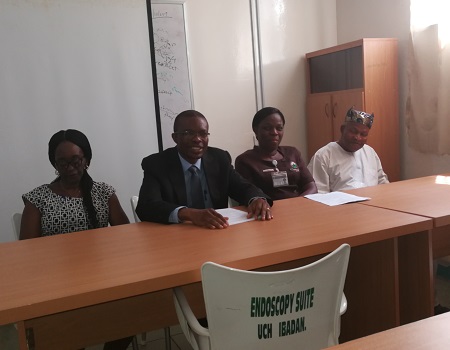
A diabetes expert, Dr Williams Balogun has said that Nigeria now harbours 10 million diabetics, the largest in Africa.
Dr Balogun, speaking at a press briefing to mark the 2018 World Diabetes day organised by the UCH, Ibadan Diabetes Care team and Diabetes Association of Nigeria, Oyo State, with the theme “the family and diabetes”.
He said its prevalence in Nigeria had increased from 2.2 per cent in 1992 to 5.8 per cent based on an analysis of studies on its prevalence.
ALSO READ: Addressing vote buying
Balogun lamented that burden of diabetes and its attendant complications has become unacceptably high, said one out of 11 people worldwide also live with it while one in two people with it is undiagnosed.
According to him, “Within the time allotted at the UCH, Ibadan for diabetes clinic, on the average of 50 to 60 old cases are attended to. We also record between 8 and 10 new cases weekly.
“On an average day, our medical wards are half- filled with diabetes patients who have unhealed wounds in their feet and waiting for leg amputation or are already amputated.
“Many people living with diabetes are also battling with kidney failure and several others visit eye clinic to salvage eyes that are fast going blind.”
Dr Balogun decried the low level of awareness about diabetes and the disposition to the care of people living with diabetes by the government and the general populace
According to him, “some people still believe that it only affects the affluent and is caused by witches and wizards.”
The expert, who appealed to the government to revamp the health care system and make it accessible, subsidising the drugs, especially insulin and ensure regular supply of genuine medicines as well as provide cover for diabetes care in the National health insurance.
Dr Joko Adeleye, a consultant endocrinologist, declared that a functional primary health care centres are vital for the care of chronic diseases like diabetes, warning that the onset in Nigerians is at an earlier age unlike in developed countries.
She declared that the cost of treating diabetes is phenomenal, and as such the need to train and retrain health care providers on the disease and its treatment.
Mrs Grace Adekoya, an assistant director of nursing, said that it is hereditary in nature, and therefore other members of the family should consider themselves as good as having it.
Adekoya urged family and friends of people living with diabetes to learn what it means to be diabetic, find out the needs, not to argue or insist on their own opinion in caring for them as well as help them keep track of the medication.



